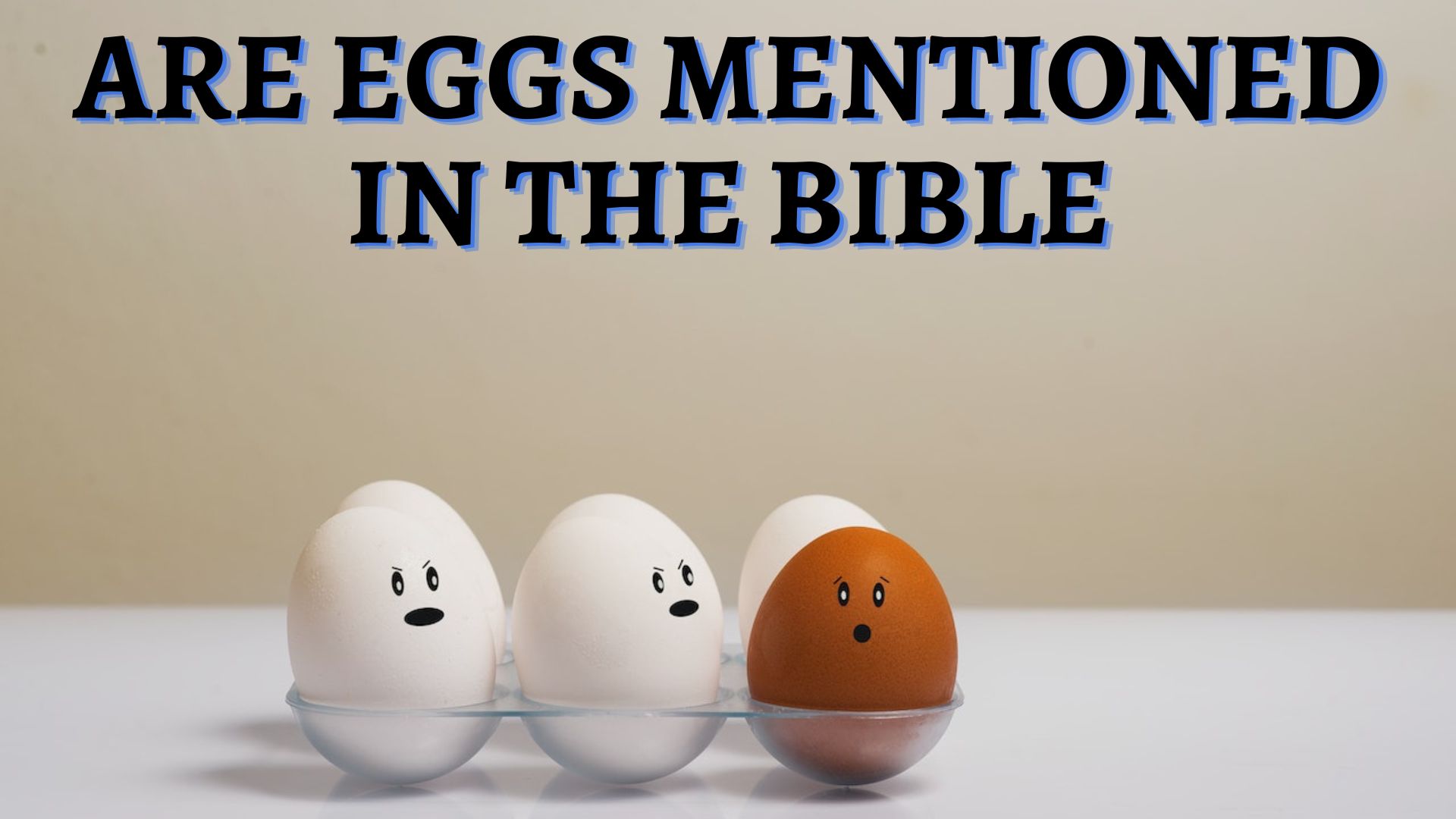Are Eggs Mentioned In The Bible?
There are eggs mentioned in the Bible, and they are never associated in any way with Jesus' death and resurrection. It is impossible to read the Bible and get anything remotely similar to the idea of dying eggs for Easter.
Author:Suleman ShahReviewer:Han JuJan 19, 20233.5K Shares161.2K Views

There are eggs mentioned in the Bible, and they are never associated in any way with Jesus' death and resurrection. It is impossible to read the Bible and get anything remotely similar to the idea of dying eggs for Easter.
Although there is no evident relationship between the colored eggs and Jesus' resurrection, Easter is universally celebrated with colored eggs. Easter eggs are not "biblical" in the sense that the Bible makes no mention of them or even suggests that they are a thing.
The Bible And The Food We Eat
God has revealed which foods are suitable for human consumption and which are not. In the Bible, they are distinguished. So yes! The Bible refers to eggs as well.
Verse 1
The riches of the peoples have been discovered by my hand like a nest; similarly to how one gathers abandoned eggs, I have gathered the entire earth; yet, not a single thing moved an inch, opened its lips, or chirped.
Verse 2
You must not take the mother with the young if you come across a bird's nest in a tree or on the ground with young or eggs and the mother sitting on the young or the eggs. 7 You must let the maternity leave, but you may keep the young for yourself so that everything will go well and you will live a long time.
Verse 3
Because she lets the ground warm her eggs, she lays them on the ground.
Pagan Cultures And Decorated Eggs
There is a widespread belief today that Easter eggs originate from some sort of springtime pagan fertility ritual because eggs are the beginning of new lifeand birds lay eggs in the spring. Although there is some logic to this assumption, few can provide any credible historical evidence to support it.
Many different cultures have indeed decorated eggs over the years. There are historical examples of intricate artwork engraved into the thick, hard shells of ostrich eggs in Africa, the Near East, and throughout the Mediterranean. Some cultures, like China, have a long tradition of creating exquisite carvings out of eggshells that have been hollowed out.

Do You Know What 9 Foods Jesus Ate or Recommended?
Eggs And The Easter Meal
The Jewish Passover celebration gave rise to Easter. Notably, Jews used to eat hard-boiled eggs as part of their customary grief or mourning meals when they experienced a loss. They adopted the traditional Passover Seder plate and, for many Jews in the East, the major Passover supper for similar reasons.
Therefore, even though we lack documents that describe the meals that Christians consumed on Easter, it would not be at all odd if hard-boiled eggs were a regular dish on many Easter tables from an early date (though certainly not dyed or decorated).
People Also Ask
What Does The Biblical Egg Represent
As a representation of fertility, rebirth, and eternal life, Christianity accepted eggs.
Can A Christian Consume Eggs?
Because Christians aren't allowed to eat meat or eggs during Lent before Easter.
Eggs Were Consumed In Biblical Times?
Only harvesting eggs from the wild is mentioned in biblical references to eggs.
Conclusion
As you read in the article, there are eggs mentioned in the Bible. The Bible refers to them in several places. In light of the Bible, I trust you now have adequate knowledge regarding the egg.

Suleman Shah
Author
Suleman Shah is a researcher and freelance writer. As a researcher, he has worked with MNS University of Agriculture, Multan (Pakistan) and Texas A & M University (USA). He regularly writes science articles and blogs for science news website immersse.com and open access publishers OA Publishing London and Scientific Times. He loves to keep himself updated on scientific developments and convert these developments into everyday language to update the readers about the developments in the scientific era. His primary research focus is Plant sciences, and he contributed to this field by publishing his research in scientific journals and presenting his work at many Conferences.
Shah graduated from the University of Agriculture Faisalabad (Pakistan) and started his professional carrier with Jaffer Agro Services and later with the Agriculture Department of the Government of Pakistan. His research interest compelled and attracted him to proceed with his carrier in Plant sciences research. So, he started his Ph.D. in Soil Science at MNS University of Agriculture Multan (Pakistan). Later, he started working as a visiting scholar with Texas A&M University (USA).
Shah’s experience with big Open Excess publishers like Springers, Frontiers, MDPI, etc., testified to his belief in Open Access as a barrier-removing mechanism between researchers and the readers of their research. Shah believes that Open Access is revolutionizing the publication process and benefitting research in all fields.

Han Ju
Reviewer
Hello! I'm Han Ju, the heart behind World Wide Journals. My life is a unique tapestry woven from the threads of news, spirituality, and science, enriched by melodies from my guitar. Raised amidst tales of the ancient and the arcane, I developed a keen eye for the stories that truly matter. Through my work, I seek to bridge the seen with the unseen, marrying the rigor of science with the depth of spirituality.
Each article at World Wide Journals is a piece of this ongoing quest, blending analysis with personal reflection. Whether exploring quantum frontiers or strumming chords under the stars, my aim is to inspire and provoke thought, inviting you into a world where every discovery is a note in the grand symphony of existence.
Welcome aboard this journey of insight and exploration, where curiosity leads and music guides.
Latest Articles
Popular Articles
